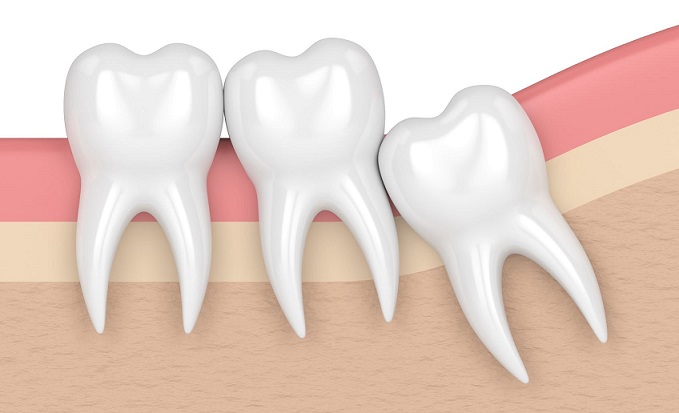Third Molar
Removal

What are wisdom teeth?
Most of us will develop a third molar tooth in each quadrant of our mouths, upper left, upper right, lower left lower right. The molars are the large grinding teeth in back. The last molars in the line are called 3rd molars or more popularly wisdom teeth. These teeth usually erupt, break through the gum tissue after the age of 17. Some will only partially erupt and others will stay completely buried under the tissue. Many patients never develop 3rd molars although a few folks will get 4th molars. Fortunately, these are rare.
Should you have your 3rd molars removed?
This question causes a great deal of controversy. There is some evidence that our jaws are getting smaller. However, the size of our teeth have not changed as much. Consequently, many of us do not have room for our 3rd molars. Mankind has evolved over the last half million years without having 3rd molars removed. It was only after the development of local anesthesia that dentists started routinely removing these teeth. I learned in dental school that all unerupted 3rd molars should be removed. However, the latest guidelines I have seen suggest that if you are 35 years old and they are not yet in your mouth, leave them alone but check them in x-ray every few years.
What can happen if I leave them?
All teeth form in tissue sacks called follicles. Sometimes these sacks will enlarge becoming a cyst, a fluid filled sack, that can cause the loss of part of the jaw bone. If enough of the bone is lost it could lead to a weakened jaw that could fracture easily. The cyst could put pressure on the nerves of the jaw. If the 3rd molars are laying on their side, they can cause bone around the roots or the roots of adjacent teeth to be eaten away. There is some very very very slight chance the cyst could change to other types of tissue. The teeth may lead to infection later in life and need to be extracted. It can be dangerous for elderly patients with some medical problems to go through this surgery.
What is an impaction?
If a tooth never comes through the gum tissue and is covered by tissue or bone it is referred as "being impacted." To remove impacted teeth, the tissue must first be opened and often bone must be removed to get to the tooth. In order to keep the hole as small as possible, the teeth may be cut into several small pieces so each piece can be removed more easily. After this type of extraction, there is usually swelling and moderate to sever pain requiring potent pain killers for a few days.

